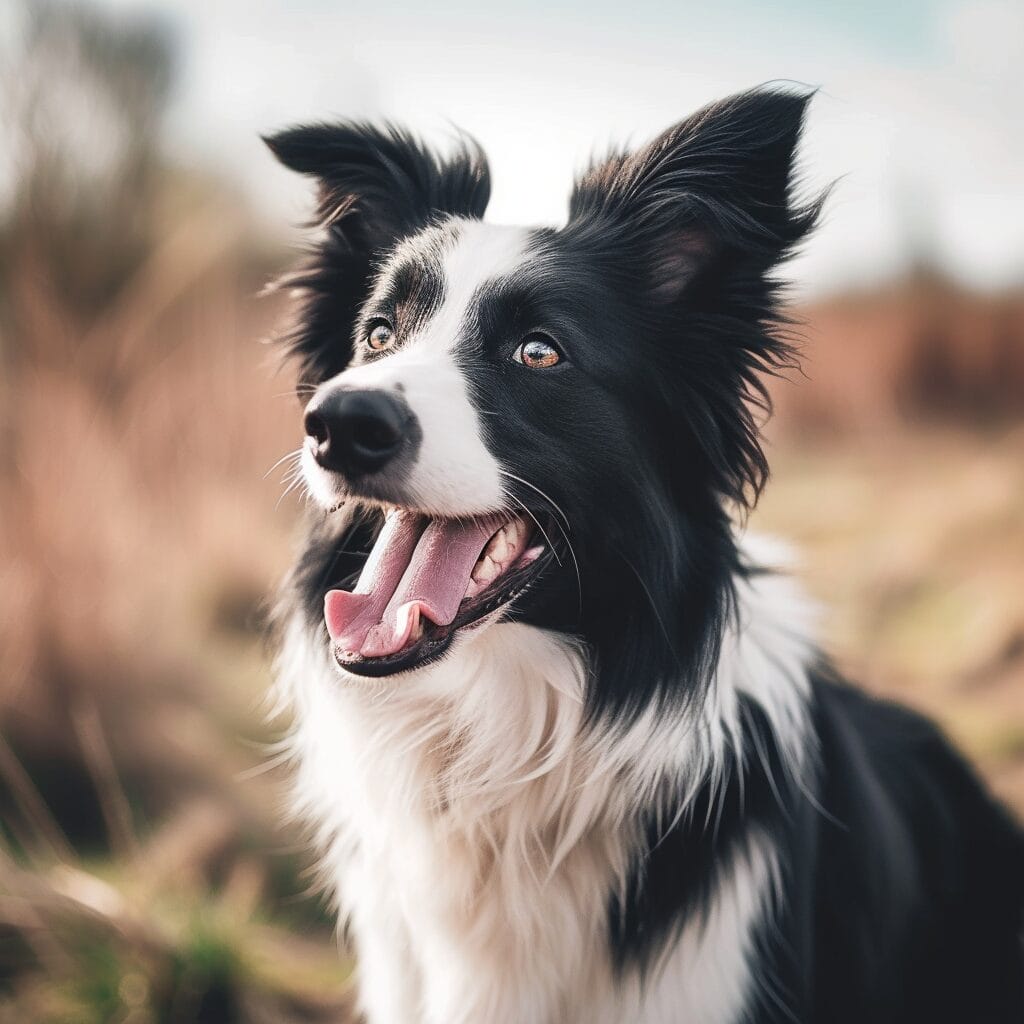Ever wondered how to care for a Border Collie like a pro? Curious about the secrets to keeping your furry friend happy and healthy? From exercise routines that will keep them active and engaged, to grooming hacks that will have their coat shining, we’ve got you covered. Stay tuned as we unravel the mysteries of caring for these intelligent and energetic pups!
How to Care for a Border Collie
Key Takeaways
- Understand the high energy and intelligence of Border Collies to provide appropriate mental and physical stimulation.
- Prioritize consistent training and socialization from an early age to prevent behavioral issues.
- Ensure regular exercise to keep your Border Collie healthy and happy, considering activities like agility training or daily runs.
- Follow grooming tips to maintain your Border Collie’s coat health, including brushing and occasional baths.
- Provide a balanced diet tailored to your Border Collie’s needs for optimal health and energy levels.
- Stay vigilant for common health issues like hip dysplasia or eye conditions, seeking prompt veterinary care when needed.
Understanding the Border Collie Breed

Providing Mental Stimulation
Border Collies, as a dog breed, are highly intelligent and energetic. Due to their herding instincts and agility, they require mental stimulation to prevent boredom.
For example, hiding treats around the house or teaching them new tricks on a regular basis can provide the mental exercise they need. This not only prevents boredom but also strengthens the bond between you and your border collie.
Regular Exercise
In addition to mental stimulation, border collies require ample physical exercise due to their high energy levels. Daily walks or runs in a safe environment where they can be off-leash are essential for this breed.
Without proper outlets for physical activity, collies may exhibit destructive behaviors out of frustration or boredom. Ensuring they get enough exercise each day will contribute significantly to their overall well-being.
History and Characteristics of Border Collies

Training Your Border Collie
Training your Border Collie is crucial due to their high intelligence and energy levels. Consistent training helps prevent behavioral issues and fosters a strong bond between you and your pet.
When training, focus on mental stimulation as well as physical exercise. Regular exercise is essential; aim for at least 1-2 hours of activity daily to keep them happy and healthy.
- Consistent training prevents behavioral issues
- Positive reinforcement strengthens the bond with your pet
- Mental stimulation through problem-solving activities is beneficial
Grooming Needs
Border Collies have a double coat that requires regular grooming to keep it healthy. Brush their coat weekly to remove loose fur and prevent matting.
Bathe your Border Collie only when necessary using dog-specific shampoo to avoid stripping natural oils from their skin. Pay attention to their ears by checking for redness or odor, which could indicate an infection. Trim their nails every few weeks if they don’t wear down naturally.
- Regular brushing prevents matting of the double coat
- Bathe only when needed with dog-specific shampoo
- Check ears regularly for signs of infection
Health and Nutrition Tips
Maintain your Border Collie’s health by scheduling regular check-ups with a veterinarian. Stay up-to-date on vaccinations, flea/tick prevention, and heartworm medication recommended by your vet based on the region you live in.
Feed them high-quality dog food appropriate for their age, size, and activity level; avoid overfeeding to prevent obesity-related health issues. Provide fresh water at all times and monitor their weight regularly to ensure they stay within a healthy range.
- Schedule regular check ups with a veterinarian.
- Keep vaccinations updated along with flea/tick prevention.
- Feed high-quality dog food suitable for age, size & activity level.
Training and Socialization Essentials
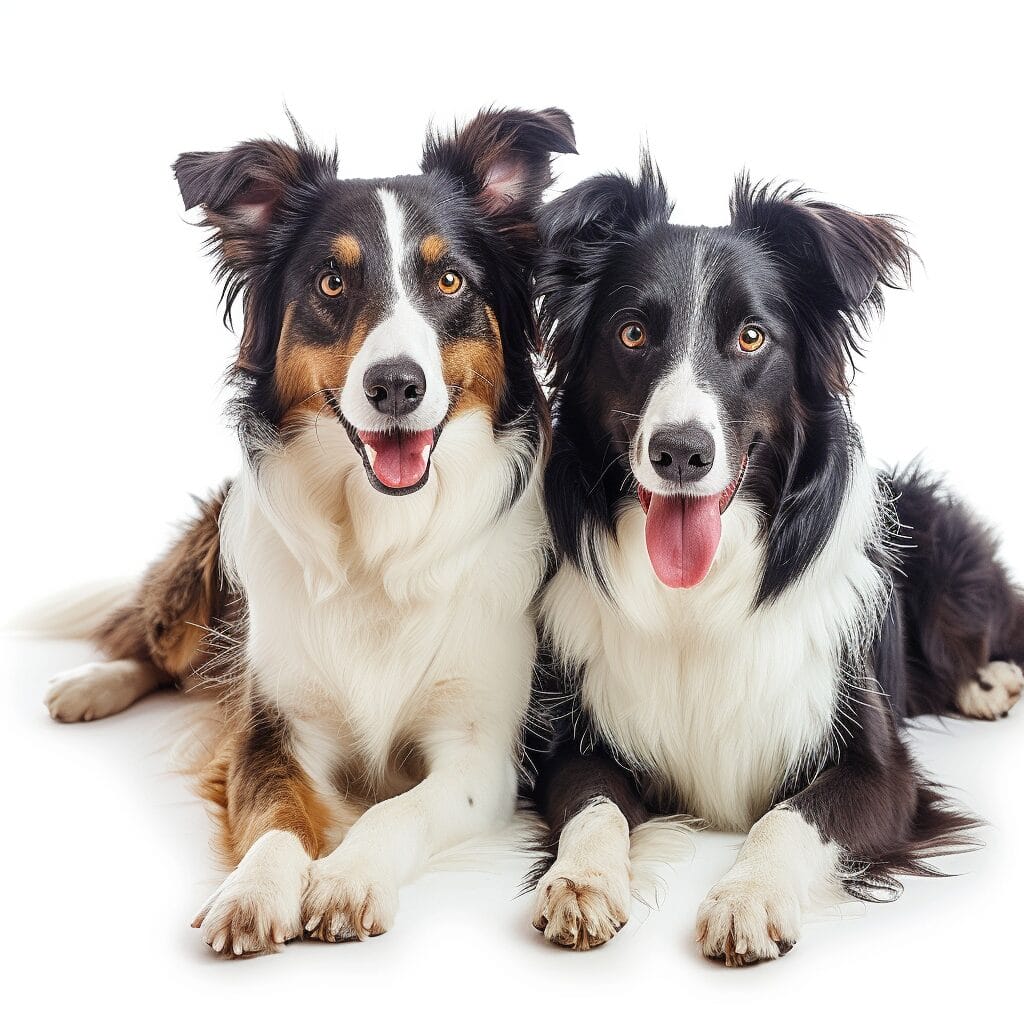
Consistent Training
Consistent training sessions are essential for Border Collies due to their high intelligence and herding instinct. These dogs thrive on mental stimulation and need regular exercises to prevent boredom.
Border Collies respond well to positive reinforcement methods during training sessions, such as rewarding good behavior with treats or praise. This approach helps reinforce desired behaviors, making the training process more effective.
Early Socialization
Early socialization plays a crucial role in preventing behavioral issues in Border Collies. Introducing them to various environments, people, and other animals at a young age can help them become well-adjusted adult dogs.
Socializing Border Collies with different types of animals, children, and new things is important to ensure they remain friendly and confident in various situations. It also helps them learn how to interact appropriately with others.
Exercise Needs for a Healthy Lifestyle
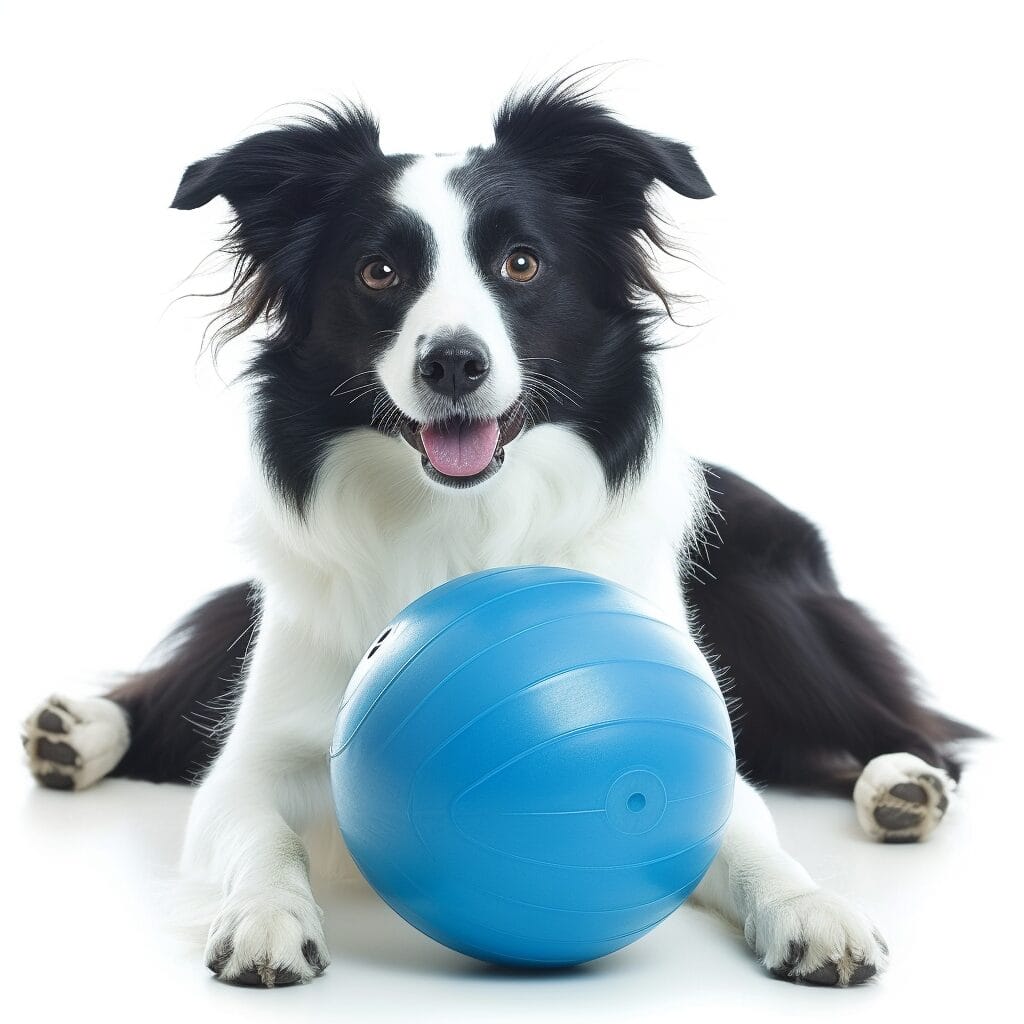
Daily Physical Activity
Border Collies require enough exercise to maintain a healthy lifestyle. Regular physical activities are crucial for their well-being. Engage them in activities like agility training or playing frisbee to keep them mentally and physically stimulated.
Regular exercise not only keeps your Border Collie fit but also helps prevent behavioral issues that may arise from excess energy. Without enough exercise, these intelligent dogs can become bored, leading to destructive behaviors such as chewing furniture or excessive barking. Ensuring they get the necessary physical activity will contribute to a happy and well-behaved pet.
Mental Stimulation Importance
In addition to physical exercise, mental stimulation is essential for Border Collies’ overall health and happiness. Providing interactive toys, puzzle games, or training sessions can help keep their minds sharp and engaged. Mental exercises are just as important as physical ones for these highly intelligent dogs.
Remember that Border Collies thrive in active households where they have plenty of opportunities to play and learn new things regularly. Lack of mental stimulation can lead to boredom which might result in unwanted behaviors such as digging holes in the yard or trying to escape from home.
Grooming and Bathing Tips
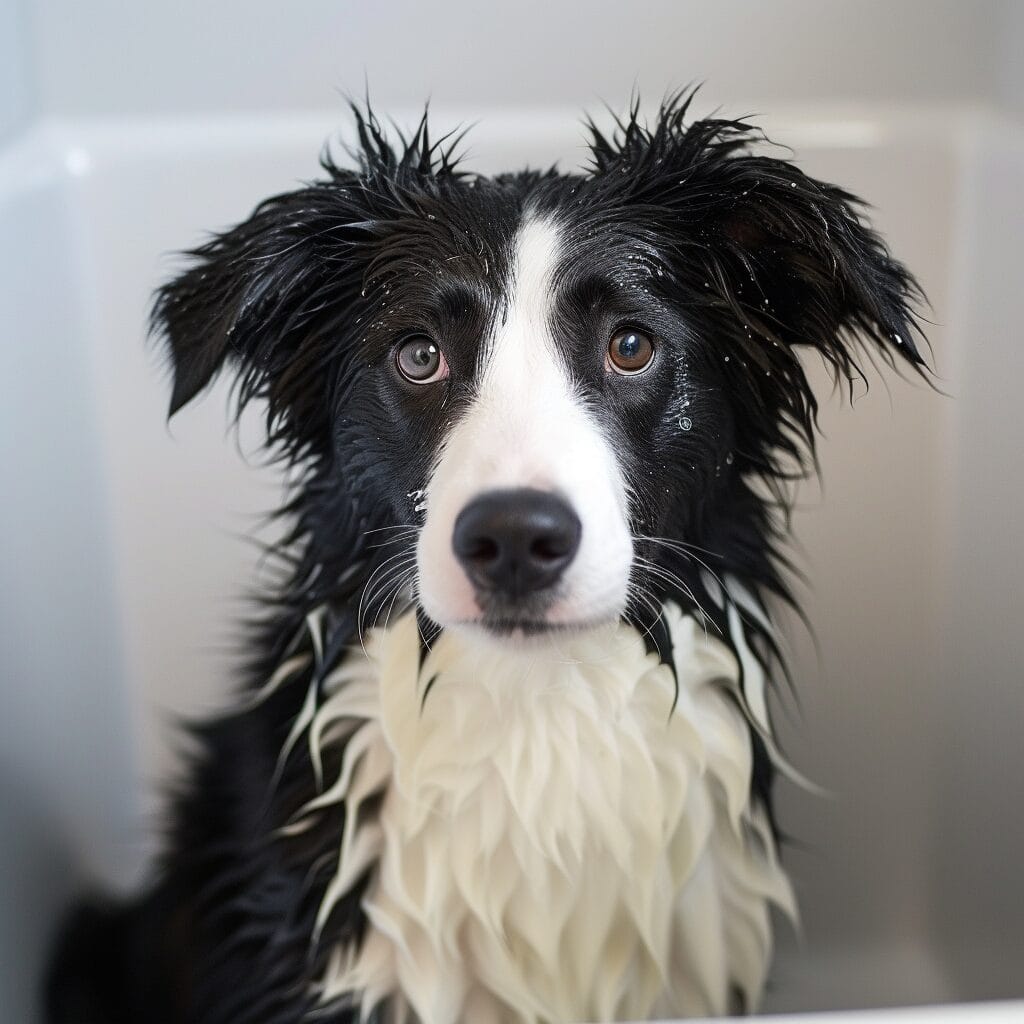
Regular Brushing
Brush your Border Collie’s double coat regularly to keep it healthy. This helps remove loose fur, prevents matting, and distributes natural oils. Use a slicker brush or undercoat rake for the best results. Pay special attention to areas like behind the ears and legs where tangles can form.
Regular brushing also allows you to check for any skin issues, roundworms, or ticks that may be present on your pet. It is an excellent bonding activity between you and your furry friend while keeping their coat in top condition.
Bathing Frequency
Bathing should be done as needed to keep your Border Collie clean without stripping their coat of essential oils. Over-bathing can lead to dry skin issues. Use a mild dog shampoo when bathing them, ensuring it is thoroughly rinsed out afterwards.
When washing your Border Collie, pay extra attention to grooming their feathered tail and mane carefully. These areas are prone to collecting dirt and debris that can lead to discomfort or matting if not properly cleaned.
Diet and Nutrition for Optimal Health

High-Quality Food
Border Collies thrive on high-quality dog food that provides balanced nutrients. Look for options specifically formulated for active breeds to support their high energy levels. Avoid feeding them human food, as it may not provide the necessary nutrients.
Aim for dog foods with top ingredients like real meat, whole grains, and vegetables. These elements contribute to your Border Collie’s overall health and well-being. Always check the label to ensure you are feeding them a diet that meets their nutritional needs.
Portion Control
Monitoring portion sizes is crucial in preventing obesity in Border Collies. Overfeeding can lead to weight gain, impacting their general health negatively. Consult with your vet regarding appropriate portion sizes based on your dog’s age, activity level, and size.
Feeding schedules play a significant role in maintaining your Border Collie’s ideal weight. Dividing their daily food into two or three meals helps regulate their metabolism and keeps them satisfied throughout the day.
Water Intake
Providing plenty of water is essential for your Border Collie’s health. Ensure they have access to fresh water at all times, especially after physical activities or during hot weather when they need more hydration.
Hydration supports various bodily functions in dogs, including digestion, circulation of blood throughout the body, regulation of body temperature, and maintenance of healthy skin and coat.
Recognizing and Managing Common Health Issues
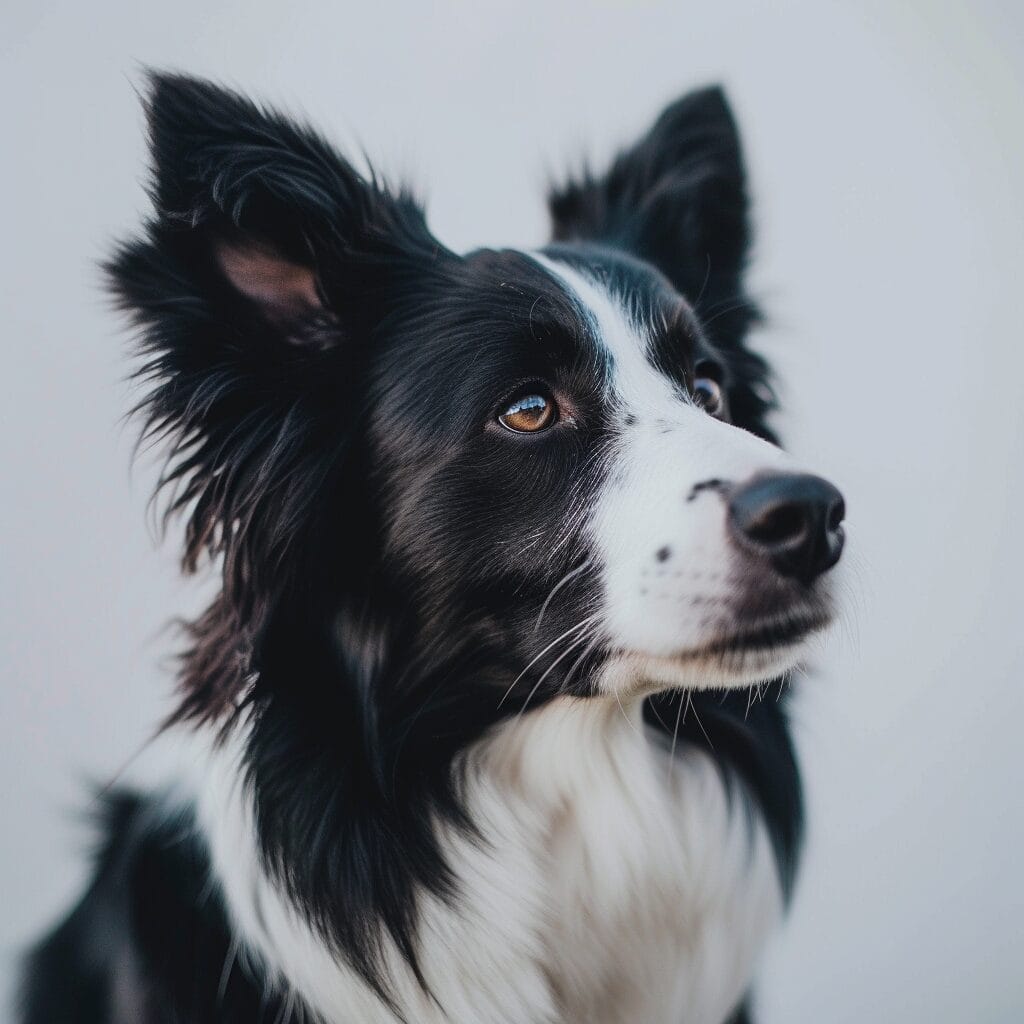
Hip Dysplasia
Hip dysplasia is a common issue in Border Collies. This condition affects the hip joint, causing pain and discomfort for your furry friend. Symptoms include limping, difficulty getting up, or decreased activity levels. Regular veterinary check-ups are crucial to detect this problem early on. If left untreated, it can lead to arthritis and mobility issues for your pet.
Border Collies are also prone to epilepsy and eye problems. Seizures can be frightening for both you and your dog. Knowing the signs of epilepsy, such as sudden jerking movements or loss of consciousness, can help you act promptly by seeking veterinary care immediately if necessary.
Eye Problems
Eye problems in Border Collies can range from minor irritations to more serious conditions like progressive retinal atrophy (PRA). Keep an eye out for any changes in your dog’s eyesight or behavior that may indicate vision issues. Prompt treatment is essential to prevent further damage or discomfort for your pet.
To ensure the overall well-being of your Border Collie, it’s vital to stay informed about these common health issues they may face throughout their life. By being proactive in recognizing symptoms early on and seeking appropriate veterinary care when needed, you can help manage these conditions effectively.
Caring for Border Collies at Different Life Stages

Adjust Exercise Routines
As your Border Collie ages, it’s crucial to adapt their exercise regimen. Younger dogs are full of energy and need plenty of physical activity like running and playing fetch. However, as they grow older, their energy levels decrease, and they might develop joint issues. Consider switching from high-impact exercises to low-impact activities such as short walks or swimming to keep them healthy and active without putting too much strain on their joints.
Providing mental stimulation is also essential for all life stages of a Border Collie. Engage them in interactive games or puzzles that challenge their intelligence and keep them mentally sharp. This not only prevents boredom but also helps maintain their cognitive functions as they age.
- Helps prevent joint issues in senior dogs.
- Maintains mental acuity in all life stages.
Special Diets for Senior Dogs
Senior Border Collies may require special diets tailored to meet their changing nutritional needs. Older dogs tend to be less active than younger ones; hence, they need fewer calories to avoid weight gain. Senior dogs may benefit from diets rich in omega-3 fatty acids and glucosamine supplements to support joint health and mobility as they age.
It’s essential to consult with your veterinarian before making any dietary changes for your senior Border Collie. They can provide guidance on the best food options based on your dog’s individual needs, ensuring they receive the necessary nutrients while managing any age-related health concerns effectively.
- Incorrect diet adjustments can lead to nutritional deficiencies.
- Inadequate consultation may result in adverse effects on the dog’s health.
Considerations Before Getting a Border Collie

Time and Energy Commitment
Caring for a Border Collie requires ample time and energy. These dogs are highly intelligent and active, needing mental stimulation and physical exercise daily. Without proper engagement, they may become bored or develop destructive behaviors. Consider if your schedule allows for regular walks, playtime, and training sessions.
Pros:
- Strong bond with an energetic companion.
Cons:
- Demands consistent attention and exercise routines.
Choosing Between Breeders or Rescues
When getting a Border Collie, decide between reputable breeders or adoption from rescue organizations. Research breeders thoroughly to ensure ethical practices in breeding healthy puppies. Adoption from rescues not only gives these dogs a second chance but also helps combat pet overpopulation.
Key Information:
Evaluate the source of acquiring your dog responsibly.
Financial Responsibility
Understanding the financial aspect of caring for a Border Collie is crucial. Beyond initial costs like purchasing or adopting fees, consider expenses such as veterinary care, food, grooming supplies, toys, training classes, and potential emergencies that may arise throughout their lifetime.
- Calculate monthly budgeting including routine care.
- Plan ahead for unexpected medical costs by setting up an emergency fund.
Summary
You’ve now got the lowdown on how to care for your border collie. From understanding their breed to managing common health issues, you’re armed with the knowledge to keep your furry friend happy and healthy. Remember, training and socialization are key, just like a balanced diet is for you. Regular exercise will keep your collie in tip-top shape, and grooming isn’t just about looks—it’s about their well-being too. So, whether you’re considering getting a border collie or you already have one by your side, these tips will help you be the best paw parent you can be.
Now go on, show your border collie some love and put all this info into action! They’ll thank you with those soulful eyes and wagging tail.
Frequently Asked Questions
How much exercise does a Border Collie need daily?
Border Collies are highly energetic dogs and require at least 1-2 hours of vigorous exercise every day. Engage them in activities like running, playing fetch, or agility training to keep them mentally and physically stimulated.
What is the ideal diet for a Border Collie?
A balanced diet rich in high-quality protein, essential fats, vitamins, and minerals is crucial for your Border Collie’s health. Opt for premium dog food tailored to their age, size, and activity level. Consult your vet for specific dietary recommendations.
How can I groom my Border Collie effectively?
Regular brushing to prevent matting and shedding is key. Use a slicker brush or comb designed for their coat type. Bathe them only when necessary with dog-friendly shampoo. Trim their nails regularly and check ears for cleanliness to maintain overall hygiene.
Are there common health issues I should watch out for in Border Collies?
Border Collies may be prone to genetic conditions such as hip dysplasia, epilepsy, and eye problems. Regular veterinary check-ups can help detect any health issues early on. Maintain a healthy lifestyle with proper nutrition and regular exercise to support their well-being.
At what age should I start training my Border Collie puppy?
Start basic training as soon as you bring your puppy home around 8-10 weeks old. Focus on socialization, obedience commands like sit and stay, crate training, and potty training early on. Consistent positive reinforcement techniques will help shape good behavior habits from the start.

